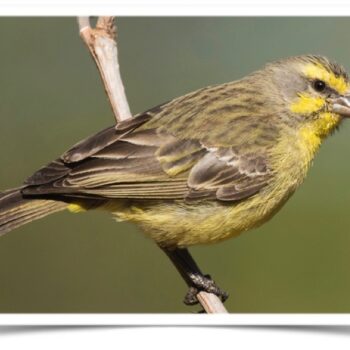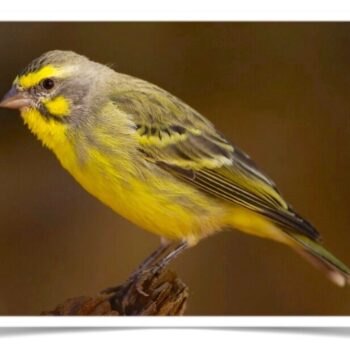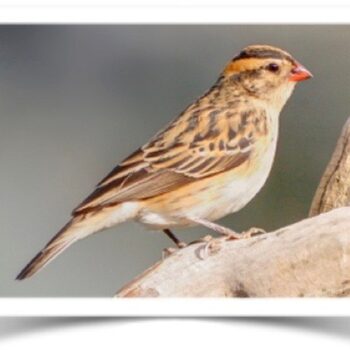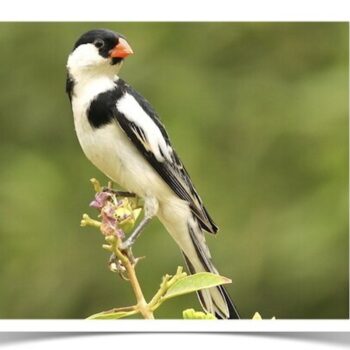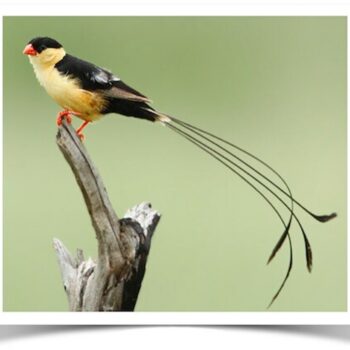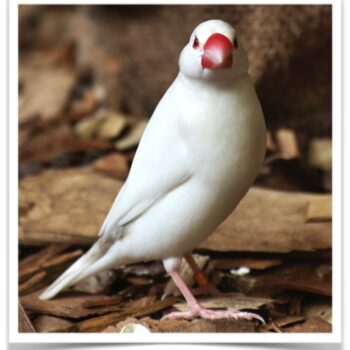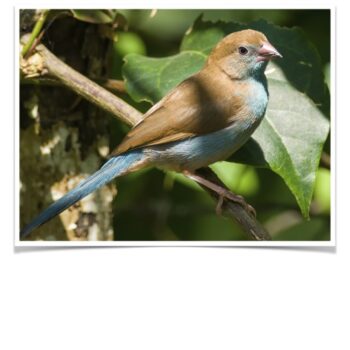The Shaft-tail Finch (Poephila acuticauda), also known as the Long-tailed Finch is a common species of estrildid finch found in Australia. It is also known as the Blackheart Finch, Heck’s grassfinch, and Heck’s finch. Opal Shaft-tails are a soft silver to dark grey coloring compared to the normal Shaft-tail’s tan, black and grey head coloring. Shaft-tails do best in an aviary vs. a cage in captivity. If a cage is provided, it should be as large as affordable. Damp conditions need to be avoided. The natural habitat of the Shaft-tail are open woodlands across northern Australia, from Derby east to the Leichhardt River in northern Queensland.
Geography: Australia
Size / Weight: 6″ / 10·9-17·2 g
Song / Call: Click to listen to the Shaft-tail finch
Sexing: Genders are too similar to visually determine sex.
Temperament: Shaft-tail finches forage on the ground for seeds in pairs and in small flocks. A 1999 study showed that male long-tailed finches are not able to determine the sex of an unfamiliar member of their species unless the unfamiliar bird declared its sex by song.
Breeding: During Courtship, the male Shaft-tail holds his head up, often with a piece of grass in his bill, bobbing up and down by bending and straightening it’s legs. In a second stage of display, he fluffs his feathers on his head and raises the rear feathers of his black bib while bobbing his head and wiping his bill. Nests are bulky and round with an entrance tube made from grasses, creepers and stems. Nests are lined with feathers, plant wool and fine grass and built in trees, bush or creepers or in clumps of grass. They will use nest boxes in captivity. Clutches are 3 to 6 eggs and insulation period is 13 to 14 days. Pairs share feeding responsibilities and
Diet: Classic Finch Seed, Australian Blend Goldenfeast, Dried Egg Food, Millet, Mineral Grit, Herb Salad, Hatched, Cuttlefish Bone
DNA Testing
If there is no gender option listed for a bird on our website, that particular species is ‘monomorphic’, which means we’re unable to determine gender without purchasing DNA testing. DNA testing is an additional $149 per bird to guarantee preferred gender. DNA testing may add an additional 3-6 plus weeks to estimated delivery time to allow for gender results. See our FAQs for more info.






